How the Russian Patriarchate Echoes Russia's Propaganda Narrative
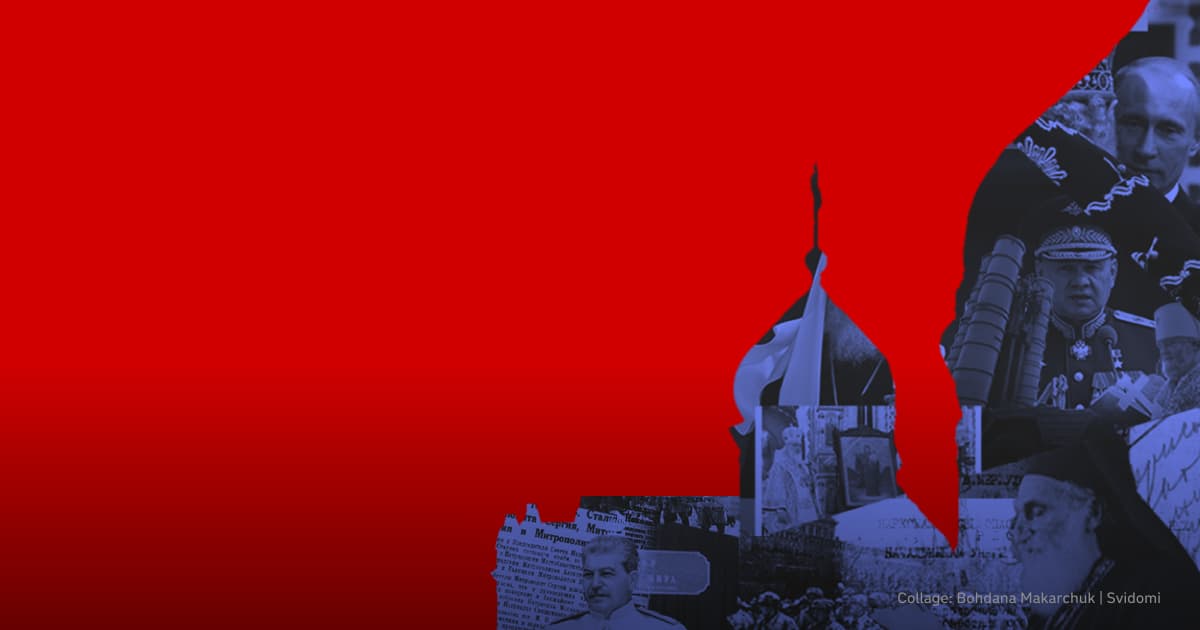
Spiritual Bonds is an ideological guideline in Russia, first mentioned by Vladimir Putin in his 2012 State of the Nation address to the Federal Assembly.
The ideology purports to promote "traditional values" but is often used as a basis for Russian military expansion.
In 2014, after the illegal occupation of Ukraine's Crimea, Putin said the Russian nation was supposedly "spiritually formed" on the peninsula. He called Crimea sacred to Russia as "Jerusalem's Temple Mount is to Judaism and Islam."
In his February 24, 2022 speech, which actually launched a full-scale war against Ukraine, Putin also mentioned "religious persecution" of Russian believers.
Read the article to find out how Russia uses the church to spread propaganda and why Ukraine has long tried to eradicate the Russian church from Ukrainian territory.
How the Russian Patriarchate Echoes Russia's Propaganda Narrative
Spiritual Bonds is an ideological guideline in Russia, first mentioned by Vladimir Putin in his 2012 State of the Nation address to the Federal Assembly.
The ideology purports to promote "traditional values" but is often used as a basis for Russian military expansion.
In 2014, after the illegal occupation of Ukraine's Crimea, Putin said the Russian nation was supposedly "spiritually formed" on the peninsula. He called Crimea sacred to Russia as "Jerusalem's Temple Mount is to Judaism and Islam."
In 2018, Ukraine received the Tomos, the right to autocephaly. The church in the country is subordinate to the Ecumenical Patriarchate, not the Moscow Patriarchate, as it used to be. This does not fit into the Russian propaganda agenda. Therefore, Russia claims an alleged split in Orthodoxy and stops mentioning the Ecumenical Patriarch in its prayers.
In his February 24, 2022 speech, which actually launched a full-scale war against Ukraine, Putin also mentioned "religious persecution" of Russian believers.
Read the article to learn how Russia uses the church to spread propaganda and why Ukraine has long tried to eradicate the Russian church from Ukrainian territory.
The Russian Orthodox Church and the Special Services
"The highest meaning of the existence of Russia and the Russian world it created - their spiritual mission — is to be the global 'Holder', protecting the world from evil," reads the order of the World Russian People's Council of November 27-28, 2023.
The Russian government has always skillfully subordinated religion to its own needs. During the existence of the Russian Empire, the church was transformed into a state institution that acted by the "decree" of the tsar (emperor).
Despite the Bolshevik anti-religious policies and the near destruction of the Church as an institution, on September 8, 1943, Soviet dictator Stalin restored the Patriarchate in the Russian Orthodox Church (ROC) and took it under his control.
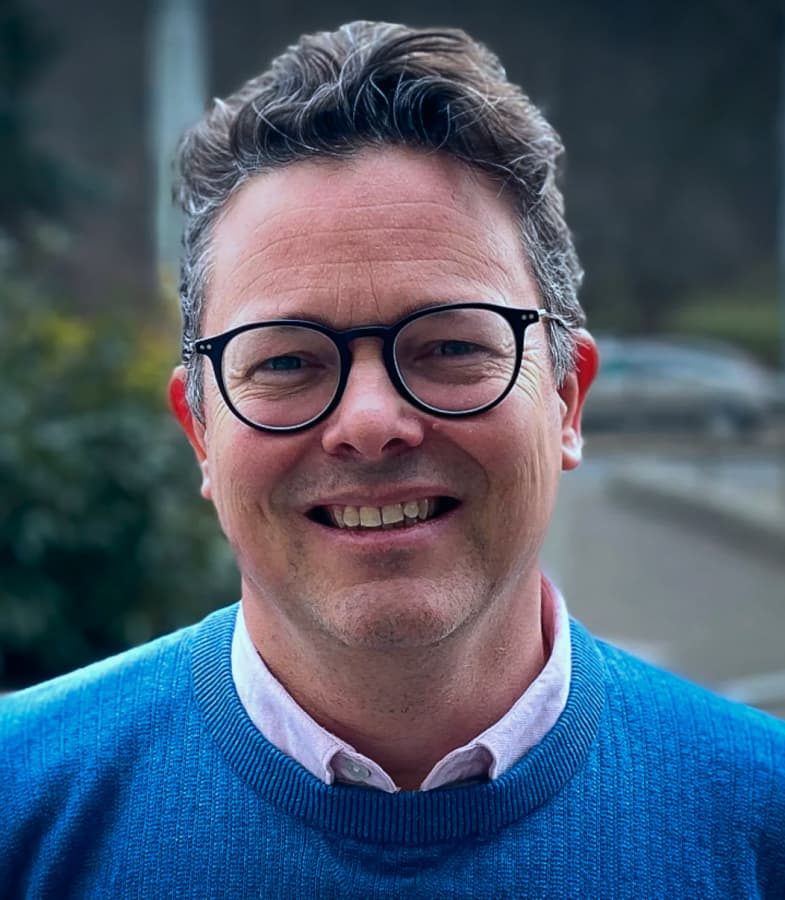
Unlike, for example, Poland, where the Roman-Catholic Church (RCC) during decades was one of the main actors of the resistance to communism, the Russian-Orthodox Church (ROC) never played that role. In order to save their spiritual heritage and ecclesial existence, the ROC found a way of collaboration with the communist regime,
says journalist, Catholic theologian, and Vatican and Rome correspondent for the Nederlands Dagblad, Hendro Munsterman, in a commentary for Svidomi.
According to Munsterman, the ROC found a way to cooperate with the communist regime to save its spiritual heritage and survival.
After the Bishops' Council of the Russian Orthodox Church in 1943, the People's Commissariat of Internal Affairs of the USSR issued a directive which stated in part: "...to ensure incessant surveillance by agents of the activities of bishops and other clergy of the Orthodox Church.
The documents released by the Security Service of Ukraine say that "each newly opened church should be provided with a verified agent from among the clergy or church activists."
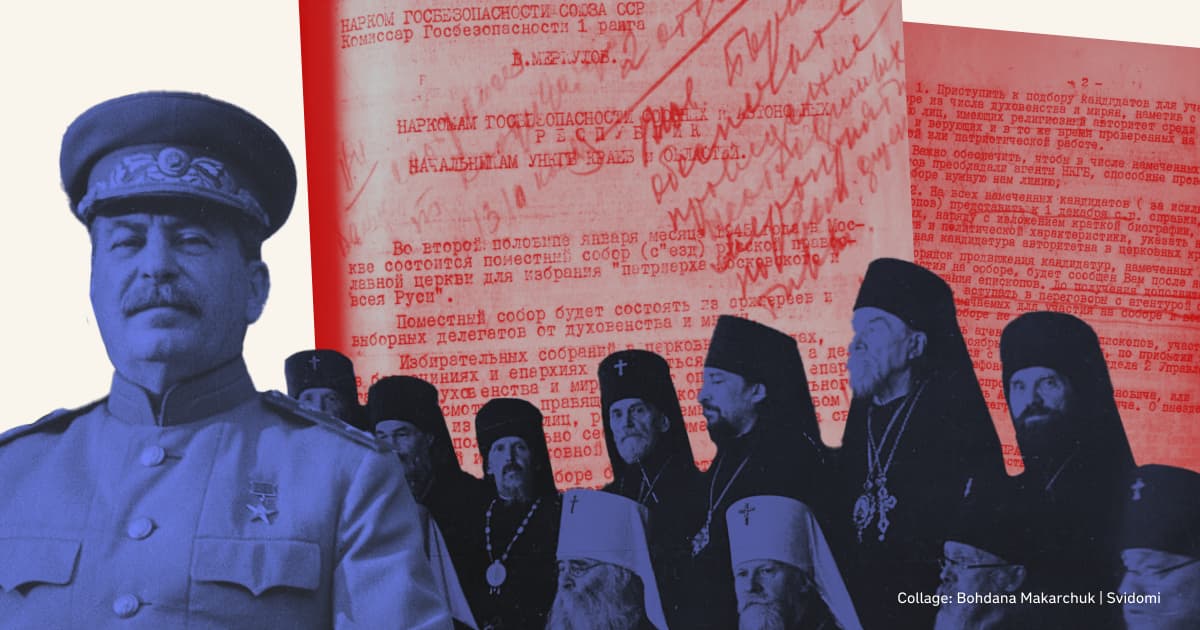
The "cooperation" between the Russian special services and the Church in Russia did not end there.
According to Swiss journalists Bernhard Odehnal of the Tages-Anzeiger and Sylvain Besson of Le Matin Dimanche, the current head of the Russian Orthodox Church, Kirill (secular name Vladimir Gundiaev), may have worked for the USSR State Security Committee in the 1970s.
The Swiss police dossier "confirms that 'Monsignor Kirill,' as referred to in this document, worked for the KGB (The Committee for State Security, the primary security and intelligence agency for the Soviet Union from 1954 until the nation collapsed in 1991 – ed.)," the journalists say.
In the 1970s, the Russian patriarch lived in Geneva, officially as the Russian Orthodox Church's representative to the World Council of Churches (WCC).
Kirill's nephew, Mikhail Gundiaev, who currently represents the Russian Church in the WCC in Geneva, told Le Matin Dimanche that his uncle "was not an agent, although he was under 'strict control' of the KGB."
How the Russian Church spreads pro-government propaganda narratives
The head of the Russian Orthodox Church is an adherent of the "Russkiy Mir" (Russian World) ideology and continues to support Russian President Vladimir Putin.

In his sermons, he justifies the war and speaks of "protecting Russia and Ukraine from gay pride parades and other diabolical practices of the West".
In March 2022, Patriarch Kirill blessed the Russian military for the war against Ukraine. After the service on the Feast of the Triumph of Orthodoxy (First Sunday of Great Lent) in Moscow, he presented the icon to the commander of the Russian Guard, Viktor Zolotov.
In September of that year, during a Sunday service, the Russian patriarch called the war against Ukraine an "internecine struggle."
"The Church prays that this struggle will end as soon as possible so that as few brothers as possible will kill each other in this fratricidal war," the ROC press service said in a statement.
In this sermon, Kirill also states that the death of the Russian military on the battlefield "washes away all their sins."

"[If a Russian soldier] dies in the line of duty, he undoubtedly commits an act tantamount to sacrifice. He sacrifices himself for others," the Russian patriarch said.
On March 27, 2024, at the Council in the Cathedral of Christ the Savior in Moscow, the war against Ukraine was called "a holy war, in which Russia and its people, defending the united spiritual space of Holy Russia, fulfil the mission of 'the One who holds.'"
The fratricidal war, the accusations of Western exclusion, the "mission", and the "great destiny" that Russia and its people supposedly serve are the theses that Putin has long and widely used.
"After the fall of communism, and especially since Putin came into power, the religious, orthodox identity of Russia was chosen as an existential element of the Russian identity since communism and tsarism couldn't play that role anymore," says theologian Hendro Munsterman.
He adds that this does not mean Russians are more religious than, for example, Ukrainians. However, the Church as an institution plays a vital role for them.
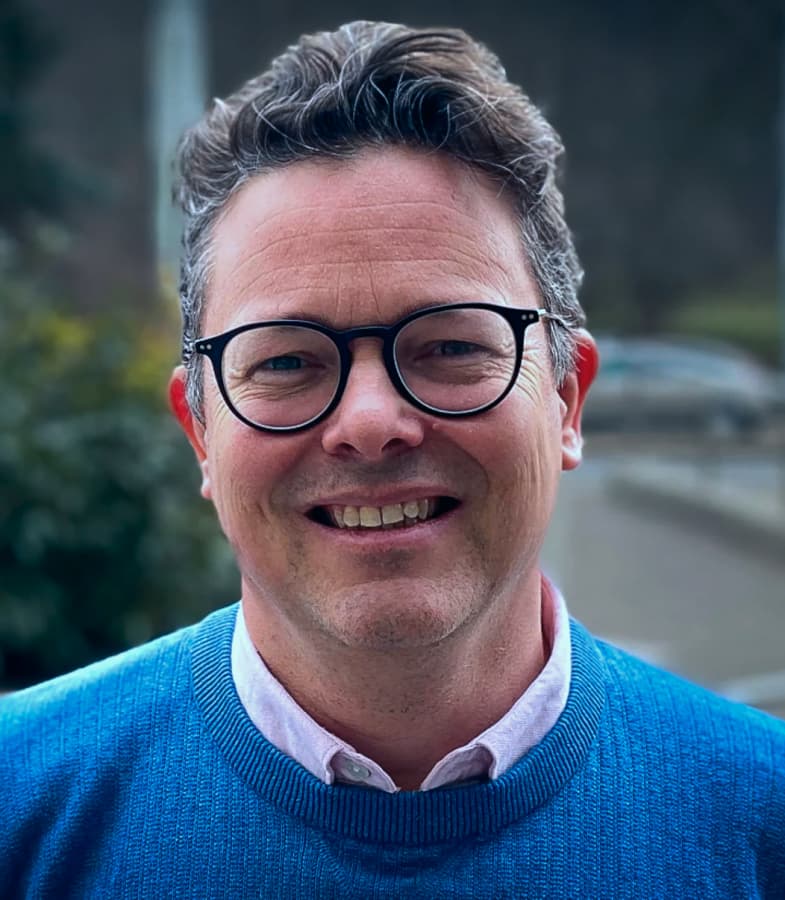
The Church plays a very important role, respected and even pushed forward by the Russian state.,
Munsterman tells Svidomi.
In his opinion, the Russian authorities took to using the term "West" in a religious sense as something that does not correspond to their faith.
Return of the Ukrainian Church
On December 15, 2018, the Unification Council of Ukrainian Orthodox Churches and the Ecumenical Patriarch established the Orthodox Church of Ukraine.
The Church regained canonical succession to the Kyiv Metropolis (an autonomous metropolis of the Ecumenical Patriarchate of Constantinople[1] with its centre in Kyiv after its formation in 988 as a result of the Christianization of Rus by Volodymyr the Great — ed.).

Suddenly, Russia’s soul—polished up again with the Orthodox faith after the fall of Communism — was existentially threatened. The umbilical cord with its own history was cut twice: politically in 1991 (the collapse of the USSR, the proclamation of Ukraine's independence — ed.) and religiously in 2018. For many Russians, the second was even more painful than the first,
says theologian Munsterman.
On January 5-6, 2019, the Orthodox Church of Ukraine received the Tomos of Autocephaly. The document, which grants the right to full self-government, was handed over to the Metropolitan Epiphanius of Kyiv and All Ukraine with the signature of Ecumenical Patriarch Bartholomew.
"According to the canons of the Orthodox Church, an independent state should have its own independent church. The Tomos can be compared to a passport that indicates maturity," religious scholar and historian Taras Antoshevskyi said in a comment to Svidomi.
Ecumenical Patriarch Bartholomew took the initiative and decided to regulate the situation with the Orthodox Church in Ukraine. After that, with political support, Ukraine gained church independence in 2018.
This decision was expected to cause outrage among the followers of the Moscow Patriarchate.
The head of the Russian Orthodox Church, Kirill, threatened the Ecumenical Patriarch with the Doomsday for granting the Tomos to Ukraine.

A spokesman for the head of the Russian Orthodox Church said that "the signing of the Tomos is negligible from the point of view of the canons and tragic for Bartholomew and his supporters, who signed their spiritual surrender."
"The Russians tried to interfere, tried to disrupt the Pan-Orthodox Council (a meeting of all the heads of Orthodox churches). But they did not expect Ukraine to be granted autocephaly. Moscow used its agents of influence around the world to oppose the granting of canonical autocephaly and claimed that it could lead to an Orthodox split in the world. There were ecclesiastical and political threats," Antoshevskyi said.
Theologian Hendro Munsterman believes that with the granting of the Tomos to Ukraine, the Russian Church lost its "birth certificate."
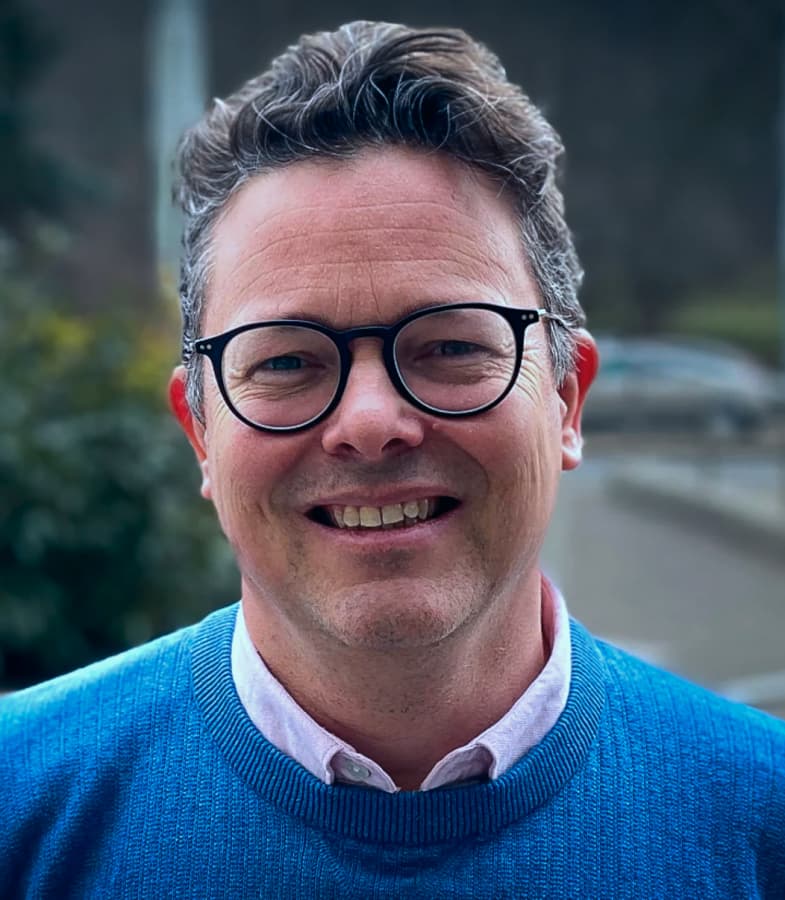
Because the second cord had to do with the identity of Russia as an orthodox country. In a way, it lost its birth certificate,
says Munsterman.
Although Russia calls it an alleged split in the Orthodox Church, the granting of autocephaly to Ukraine has been discussed for years.
On April 5, 1710, Pylyp Orlyk signed an agreement with the officers and the Cossacks that would later be called the Pylyp Orlyk Constitution.
In fact, the first Ukrainian constitution provided for the autocephaly of the Ukrainian Orthodox Church and its return from subordination to the Moscow Patriarchate to the Patriarchate of Constantinople.
The Moscow Patriarchate in Ukraine
"Through the Moscow Patriarchate in Ukraine, the Kremlin has had a decisive influence not only on the spiritual state of people but also on their guidelines. This is religious, political, and military propaganda. Since 2014, we have seen the direct involvement of representatives of the Moscow Patriarchate in this," says historian Antoshevskyi.

Back in 2004, during his presidential election campaign, Viktor Yanukovych (who would flee to Russia in 2014) emphasised that he was the only candidate who allegedly received the blessing of the Moscow Patriarchate.
"The whole campaign of such persons is conducted under the slogan of the future...the transformation of the Moscow Patriarchate into a state church...I am sure that for all these political slogans, statements that were made in churches, and promises to punish those who did not come to vote or did not vote for Yanukovych (and even this happened in the Donetsk region), the whole church will have to pay for all this," said Ihor Isichenko, Archbishop of the Diocese of Kharkiv – Poltava between 1993 and 2020, in an interview with the BBC.
Russian special services repeatedly acted under the cover of the Moscow Patriarchate. One example was the religious intelligence operation "Gifts of the Magi", as it would later be called.
In January 2014, Russia brought Christian shrines called "Gifts of the Magi" to Ukraine, particularly the Crimean peninsula. Russian oligarch Konstantin Malofeev paid for the initiative of the Russian Orthodox Church. At that time, Igor Girkin (Strelkov) was in charge of security.
In an interview with Ukrainian journalist Dmytro Hordon, Girkin said that during the “Gifts of the Magi” operation, he met Sergei Aksyonov, the current head of the occupation authorities of the Crimean peninsula.

"Accordingly, when the events (the illegal occupation of the peninsula — ed.) began, I simply went to Aksyonov as an advisor, having a very vague task of helping him with all my strength and capabilities," Igor Girkin said in an interview.
In the summer of 2014, criminal proceedings will be opened against Malofeev in Ukraine on suspicion of creating paramilitary or armed groups. The war criminal Girkin will be accused of violating Ukraine's sovereignty and territorial integrity, torture and premeditated murder.
The delegation that accompanied the "Gifts of the Magi" also included a member of the Russian State Duma, Oleg Lebedev (who participated in the Soviet-Afghan war — ed.) and Dmitry Sablin, a former Member of the State Duma and first deputy chairman of the Russian Fighting Brotherhood. He would later co-found the Anti-Maidan movement (a Russian social movement opposed the Revolution of Dignity in Ukraine — ed.) in Russia.
After the illegal occupation of the Crimean peninsula, the priests of the Moscow Patriarchate (Ukrainian Orthodox Church of the Moscow Patriarchate, UOC-MP —ed.) supported pro-Russian militants in the east of Ukraine.
Thus, in April 2014, Hieromonk Athanasius, a priest of the UOC-MP, "held a prayer service to support the boys [militants]" and "give a blessing for this good deed" — "protecting residents and their Orthodox faith from the Kyiv authorities."
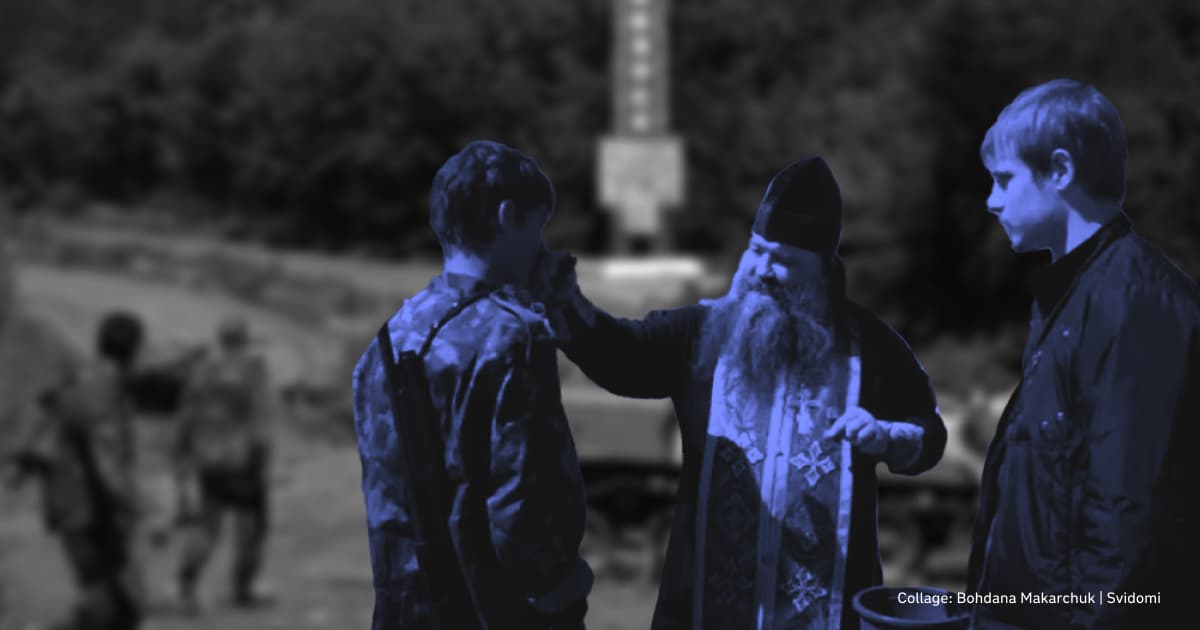
At the same time, Athanasius said that Metropolitan Hilarion of Donetsk and Mariupol of the Ukrainian Orthodox Church had suspended him from his duties "because of his patriotic messages during preaches."
Another priest from the UOC-MP, Archpriest Volodymyr Ocheretianyi of the Church of the Holy Apostles Peter and Paul in Khartsyzk (a city in the Donetsk region — ed.), also gave Holy Communion to militants in April 2014, blaming the "Kyiv authorities" for the war in the East and sided with the "militants."
In an interview with RFE/RL's Ukrainian Service, Valerii Kondratiuk, the head of Ukrainian intelligence (2015-2016), called the priests of the Moscow Patriarchate not only Russia's ‘fifth column’ (any group of people who undermine a larger group or nation from within, usually in favour of an enemy group or another nation—ed.) but also one of the Russian Federal Security Service's units.
He says that in 2014, the monks of the Kyiv Cave Monastery took part in battles against Ukrainian special forces near Sloviansk.
"There were people there who fired at the Ukrainian Security Service Special Forces. Later, when we destroyed them, we identified one of them with the call sign 'Romashka'. He was a bellman of the Kyiv-Pechersk Lavra. There were many people like him," Kondratiuk told reporters.
Ukrainian Orthodox Church of the Moscow Patriarchate
Since February 24, 2022 the Security Service of Ukraine exposed more than 80 clerics of the UOC-MP who worked for Russia.

A total of 37 suspicions have been announced, and there have already been 23 court convictions. The crimes revealed include encroachment on the territorial integrity of Ukraine, high treason, collaboration, aiding and abetting Russia, justifying the war and denying Russia's aggression against Ukraine.
Although the UOC-MP has declared that it has cut ties with the Moscow Patriarchate, theologian Munsterman doubts the extent of this independence and autonomy. Moreover, this Church is recognised by no-one of the other Orthodox Churches.
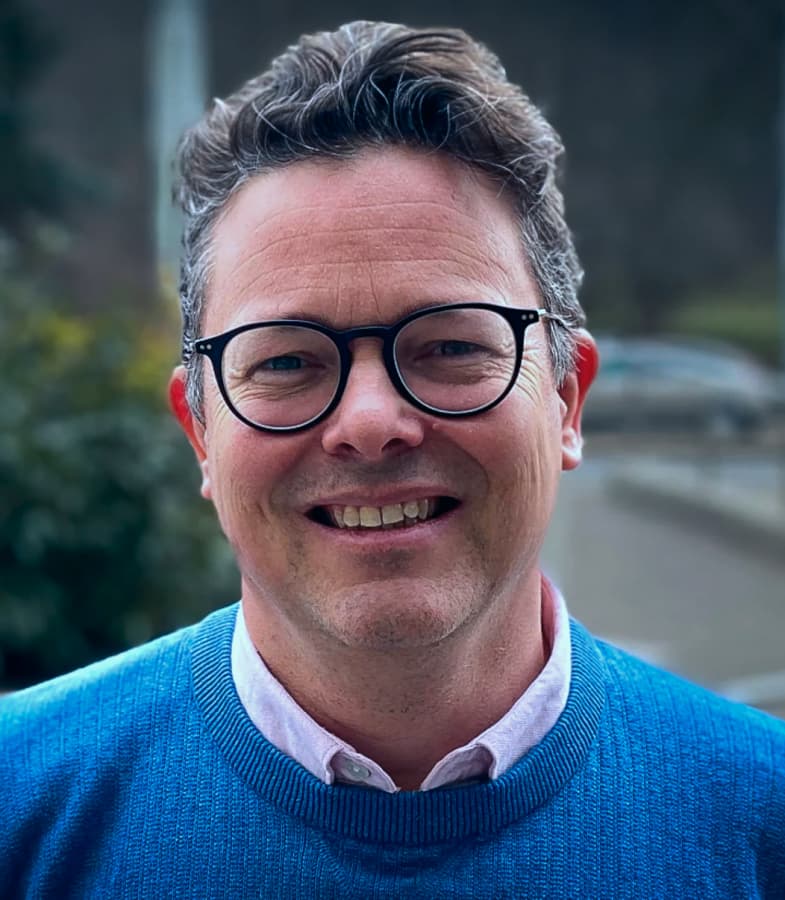
The influence of the Moscow Patriarchate will remain in Ukraine as long as there are levers of information pressure and ways to convince people [in Ukraine] that the Moscow Church is canonical,
says religious scholar Antoshevskyi.


